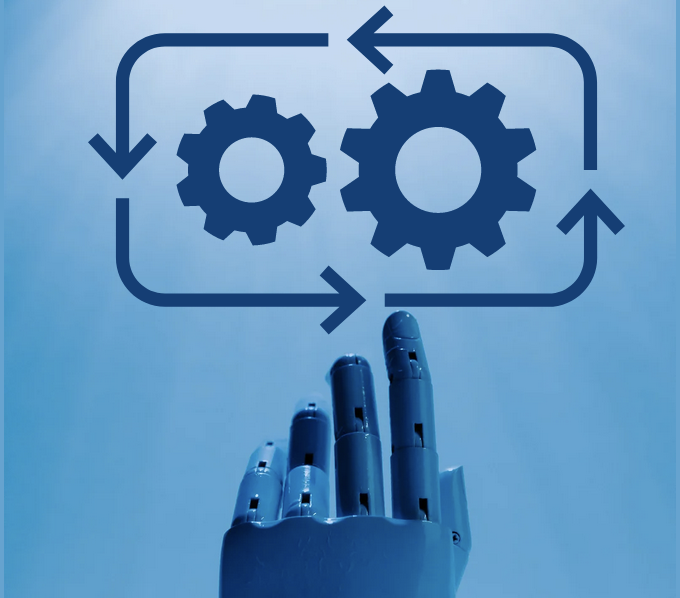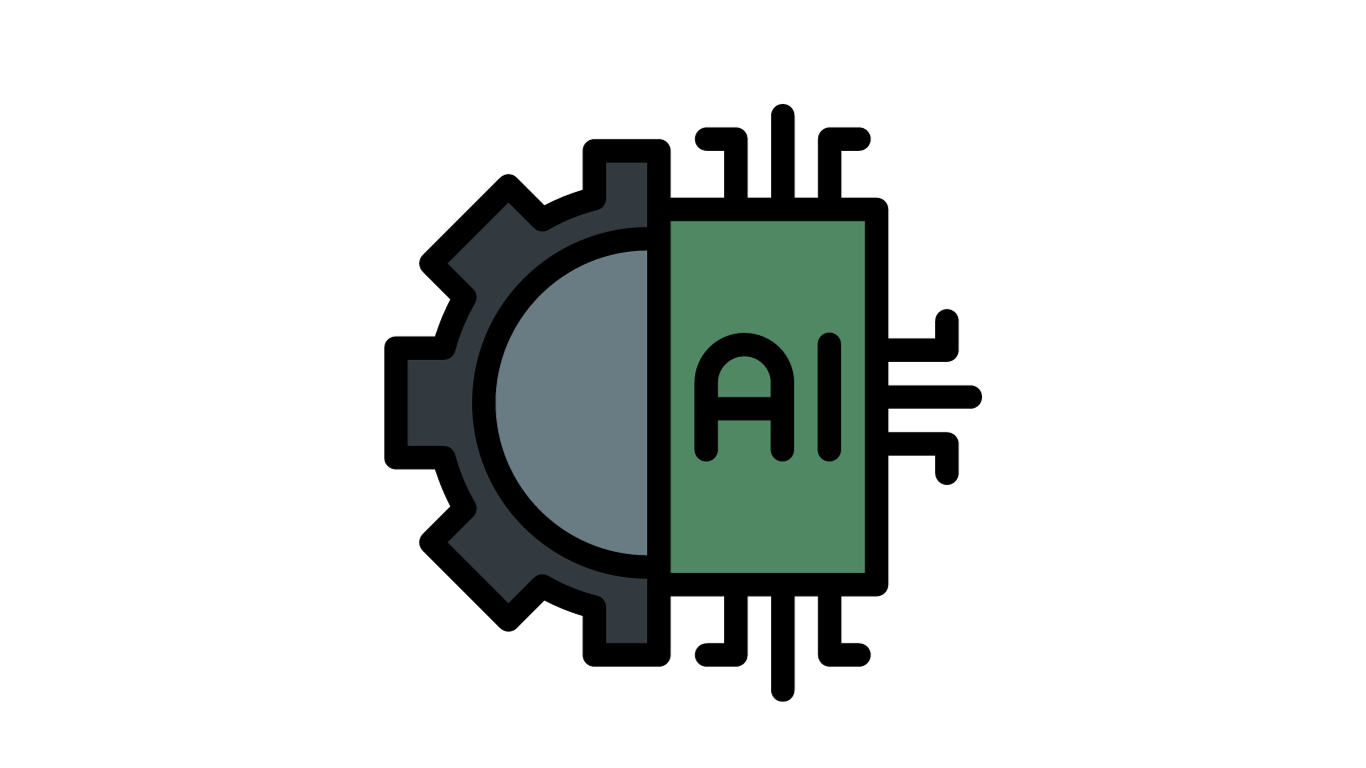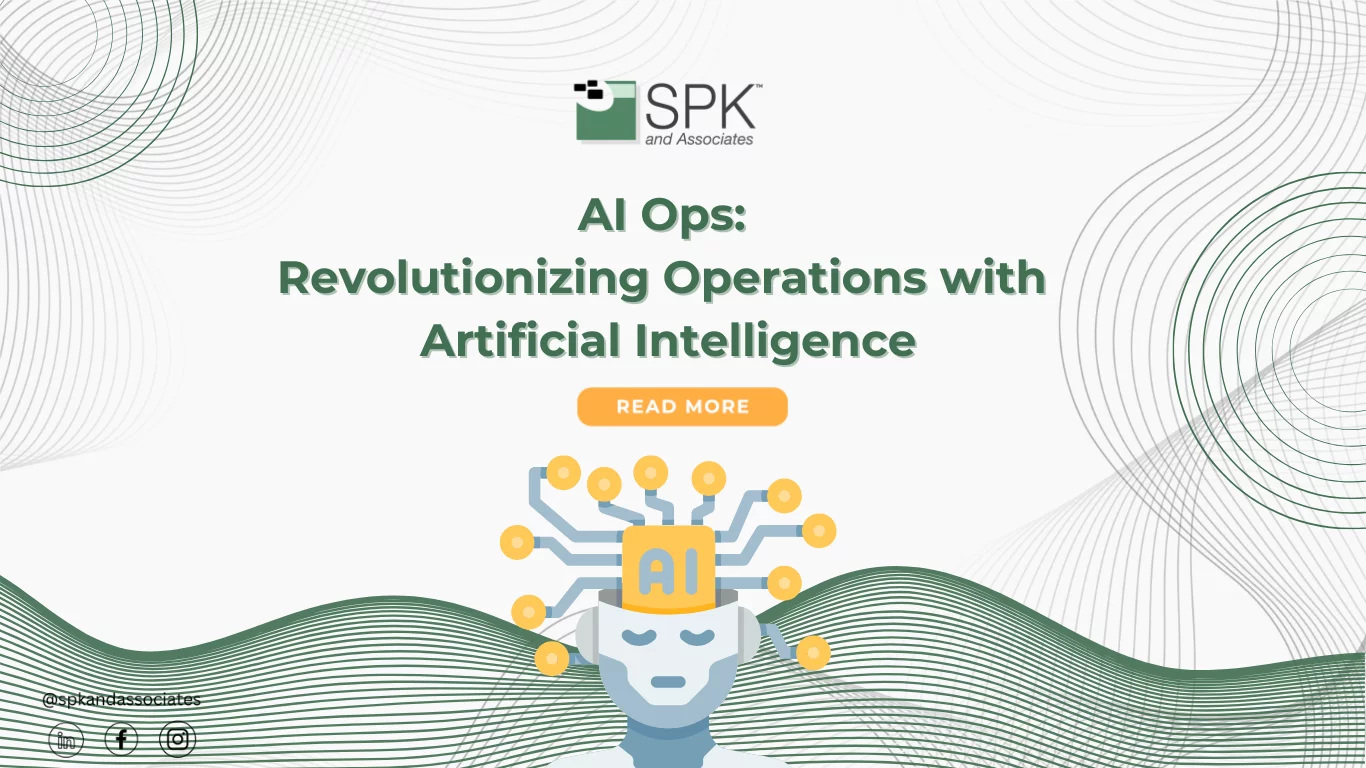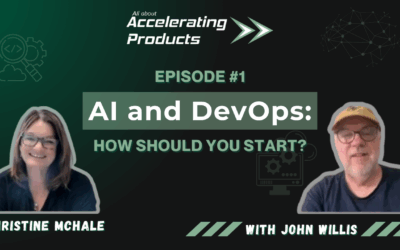The integration of artificial intelligence (AI) and operations, commonly known as AI Ops, has emerged as a game-changer in recent years. This groundbreaking approach leverages the power of AI to streamline and enhance various aspects of IT operations. In this blog post, we will explore the concept of AI Ops, its significance in today’s operations, and how it is reshaping the way businesses manage their systems and processes.
Understanding AI Ops
Firstly, AI Ops refers to the fusion of artificial intelligence and IT operations management. It involves the deployment of advanced algorithms and machine learning techniques to automate and optimize IT tasks, ranging from monitoring and incident resolution to capacity planning and performance analysis. The primary goal of it is to increase efficiency, reduce downtime, and proactively address potential issues before they escalate.

Can AI Ops replace human IT staff entirely?
AI Ops is designed to complement human capabilities rather than replace them. Even SPK’s staff haven’t fully automated all IT operations tasks. But, we do use AI-driven tools in order to reduce the amount of noise in our monitoring and management of client solutions. AI Ops automates repetitive tasks, allowing our IT staff to focus on more strategic and complex activities.
Is AI Ops only for large enterprises?
No. It can actually benefit businesses of all sizes. The scalability and flexibility of AI Ops solutions make them suitable for startups and SMEs as well.
Can it improve customer experience?
Yes, we believe so. AI Ops helps in identifying and resolving potential issues before they impact customers, leading to improved service levels and better customer experience. We’ve had several instances where time to resolve issues has been reduced due to our AI Ops powered tools.
Are there any ethical concerns with AI Ops?
Yes, It does raise ethical considerations such as data privacy, bias in AI models (see the challenges section below), and transparency in decision-making. Addressing these concerns is crucial for responsible AI Ops implementation.
Can it be integrated with existing IT systems?
Yes, AI Ops can be seamlessly integrated with existing IT systems and tools, making it a viable option for businesses looking to enhance their operations.

The Role of AI in Operations
AI Ops utilizes AI-based tools and platforms that can analyze vast amounts of data in real-time, making it possible to identify patterns, anomalies, and trends that might not be apparent to human operators. By gathering insights from diverse data sources, such as log files, metrics, and monitoring tools, it empowers IT teams to make data-driven decisions quickly and accurately.
The Benefits of AI Ops
Proactive Incident Management
With AI Ops, businesses can transition from a reactive approach to a proactive one when handling incidents. AI-powered systems can recognize potential issues before they impact operations, leading to faster resolutions and improved service levels. For SPK’s team, this is the most impactful change of using an AI Ops-driven approach.
Enhanced Efficiency
Automating routine tasks this way frees up IT staff to focus on more strategic initiatives. The ability to automate repetitive processes ensures that IT teams can work on complex projects, driving innovation within the organization.
Predictive Analytics
AI Ops leverages predictive analytics to forecast potential outages or performance bottlenecks. This capability allows businesses to take preventive actions, minimizing the impact on end-users and customers.
Scalability and Flexibility
AI Ops solutions are highly scalable and adaptable, making them suitable for businesses of all sizes. Whether it’s a small startup or a large enterprise, it can cater to the specific needs and demands of each organization.
Challenges and Considerations for AI Ops
Data Security and Privacy
The integration of AI Ops involves handling vast amounts of sensitive data. Ensuring the security and privacy of this data is crucial to avoid potential breaches or unauthorized access. It relies on vast amounts of data from various sources to make informed decisions. Ensuring the security of this data is critical to prevent unauthorized access, data breaches, or potential cyber-attacks.
Also, organizations must comply with data privacy regulations, such as the General Data Protection Regulation (GDPR) in the European Union or the California Consumer Privacy Act (CCPA) in the United States. The systems should be designed in a way that respects individuals’ privacy rights and protects their personal data. For example, naming conventions for laptops could be an issue if the laptop is named for the individual using it. AI Ops may involve processing sensitive data, including personal identifiable information (PII), financial records, or confidential business data. Safeguarding this information is vital to prevent data leaks or misuse.

In some cases, organizations may rely on third-party AI Ops service providers or vendors. Sharing data with external entities raises concerns about data ownership, access controls, and the risk of data exposure. Not to mention about the large volumes of historical data for analysis, policies related to backup and retention, and when to delete data that is no longer necessary. There are many considerations with external services providers.
To address these concerns, organizations implementing it should conduct thorough risk assessments, establish robust data governance policies, and adhere to relevant data privacy regulations. Moreover, transparent communication with stakeholders about data handling practices and the use of AI in operations can help build trust and alleviate privacy concerns.
AI Bias and Fairness
AI models used in operations must be fair and unbiased. Avoiding discriminatory outcomes is essential to build trust and credibility in AI Ops systems. Although this Amazon story is more related to recruitment and screening of new hires, it shows that AI solutions built by some of the smartest technology companies around can still have bias. Building AI models is not easy nor should it be undertaken without checks and balances to review and ascertain if it’s accomplished the task as needed.
Skill Gap and Training
To fully harness the potential of AI Ops, organizations need to invest in upskilling their IT workforce or outsourcing it to a company such as SPK and Associates. Providing training and development opportunities will empower employees to make the most of AI-based tools. This can take anywhere from 10 to 100 hours of training and skill development.
According to a recent study from Deloitte Insights, 37% of organizations have deployed AI solutions, which is up 270% from just 4 years ago. But there is a lack of AI training with companies providing these solutions. The World Economic Forum’s 2023 Future of Jobs Report stated that 50% of employees requiring reskilling due to technological disruptions had limited access to training opportunities. Also, a study by Element AI found that 49% of AI job postings were for Ph.D. holders, while only 4.4% of AI professionals held a Ph.D., highlighting a significant skill mismatch. It will be important for all organizations to expand the skills of their team members in order for it to fully take hold.
The Future of AI in DevOps
As AI technology continues to advance, AI Ops is set to become even more integral to business operations. We can expect increased adoption across various industries, leading to greater efficiency and productivity. This means AI Ops as a part of software development and DevOps as well.
In 2020, respondents to GitLab’s annual Global DevSecOps Survey mentioned artificial intelligence and machine learning for the first time. In that survey, roughly 16% of respondents were using “bots” to test code, or were planning to, while 12% of devs said knowledge of AI/ML would be critical to their future. Just two years later, AI is a reality in DevOps and according to GitLab’s 2022 Global DevSecOps survey, it’s here to stay.
- 24% of respondents said their DevOps practices include AI/ML, more than double the 2021 percentage.
- 31% of teams are using AI/ML for code review, 16 points higher than 2021.
- Today 37% of teams use AI/ML in software testing (up from 25% in 2021), and 20% plan to introduce it this year. Another 19% plan to roll out AI/ML-powered testing in the next two to three years.
- 51% use AI/ML to check (not test) code.
In that survey, only 5% of teams said they had no plans to incorporate AI in DevOps. That’s telling given today’s landscape of ChatGPT and other AI solutions.
Conclusion
AI Ops is transforming the landscape of IT operations by introducing unprecedented levels of automation and intelligence. This innovative approach empowers businesses to be proactive, data-driven, and agile in managing their systems. As AI Ops continues to evolve, organizations must embrace this paradigm shift to stay ahead of their competitors.
If you’re looking for a partner to provide AI strategy and guidance, contact SPK and Associates experts today.





